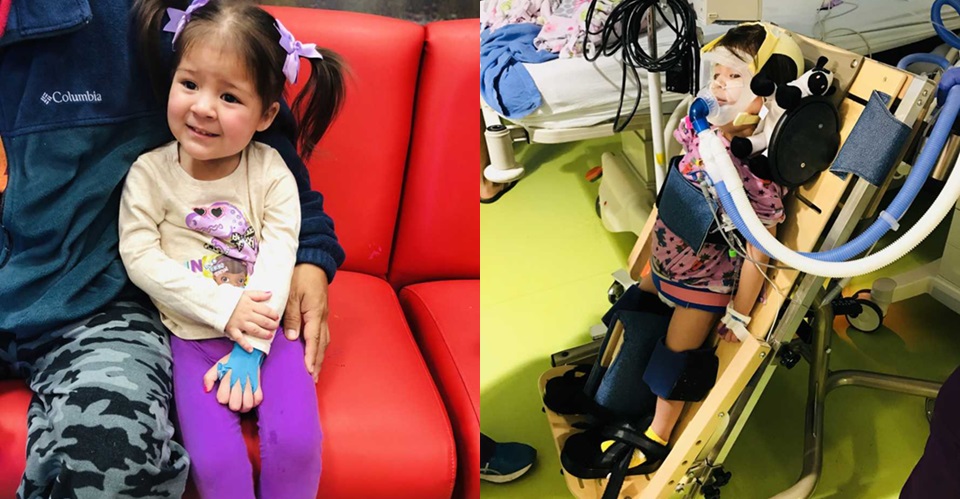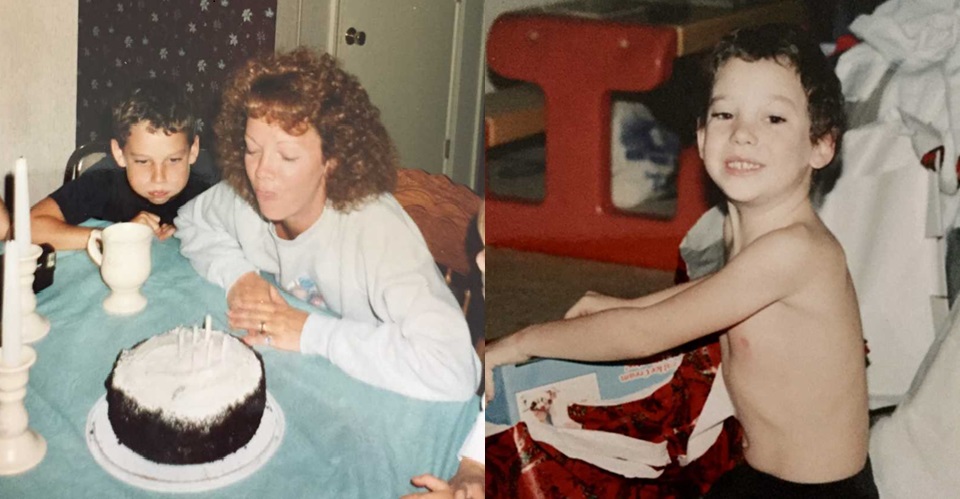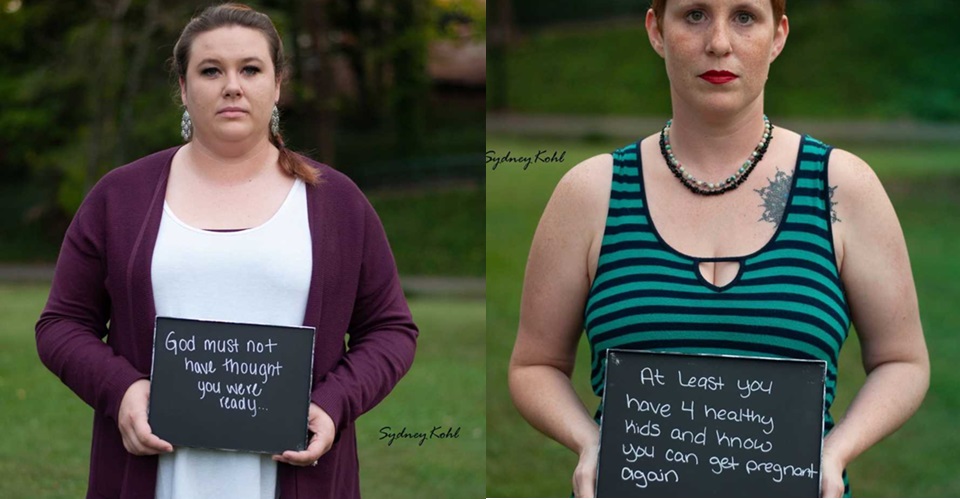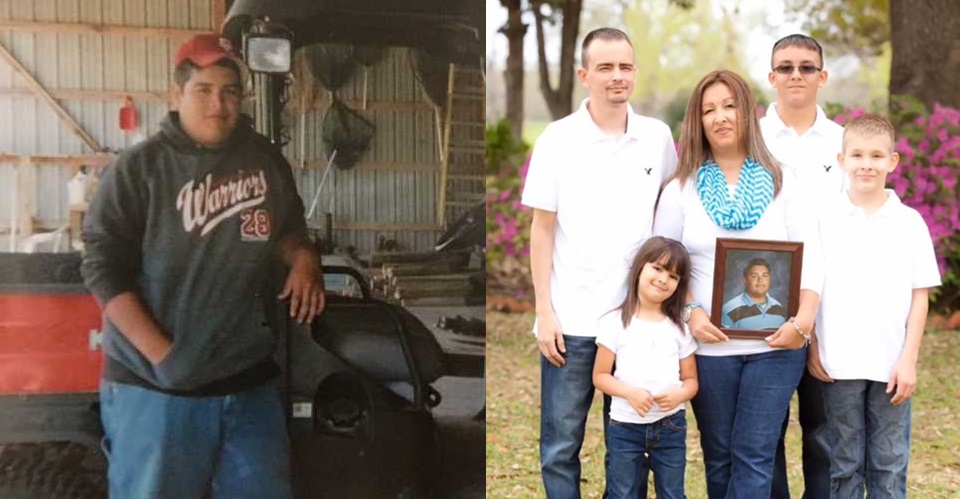When her youngest daughter came down with what seemed like an ordinary cold, a mother from Georgia never imagined it would turn into a life-threatening illness that would change their family forever. In early September 2018, all four of her children had the same symptoms: runny noses, coughs, and mild fevers. The routine seemed simple enough: the same medication, the same care, the same schedule. But while the others began to recover, two-year-old Abigail only grew worse.
After three weeks of doctor visits and two rounds of antibiotics, her mother woke in the early hours one morning to give her medicine. That was when she noticed something was terribly wrong. Abigail couldn’t lift her arm. What began as a cold had somehow left her paralyzed on one side. Within minutes, her parents rushed her to the nearest emergency room, praying it was something minor.

At the hospital, doctors ran blood tests and X-rays but found nothing unusual. After hours of waiting, they concluded it was likely a pinched nerve and sent her home in a sling, advising a follow-up visit the next week. But by that afternoon, her fever spiked and her shoulder grew weaker. Trusting her instincts, her mother called the pediatrician again and was told to go to another hospital immediately. That decision would ultimately save her life. Doctors admitted Abigail to the intensive care unit at the second hospital for testing. Over the next few days, she underwent a spinal tap, CT scans, MRIs, and multiple blood cultures. Steroids and antibiotics were started through an IV as her condition continued to decline. When the doctors finally admitted they didn’t know what was wrong and said she needed to be transferred to a children’s hospital in Atlanta, her parents felt helpless. Watching their daughter being taken away by ambulance, unable to move or understand what was happening, was one of the most challenging moments of their lives.
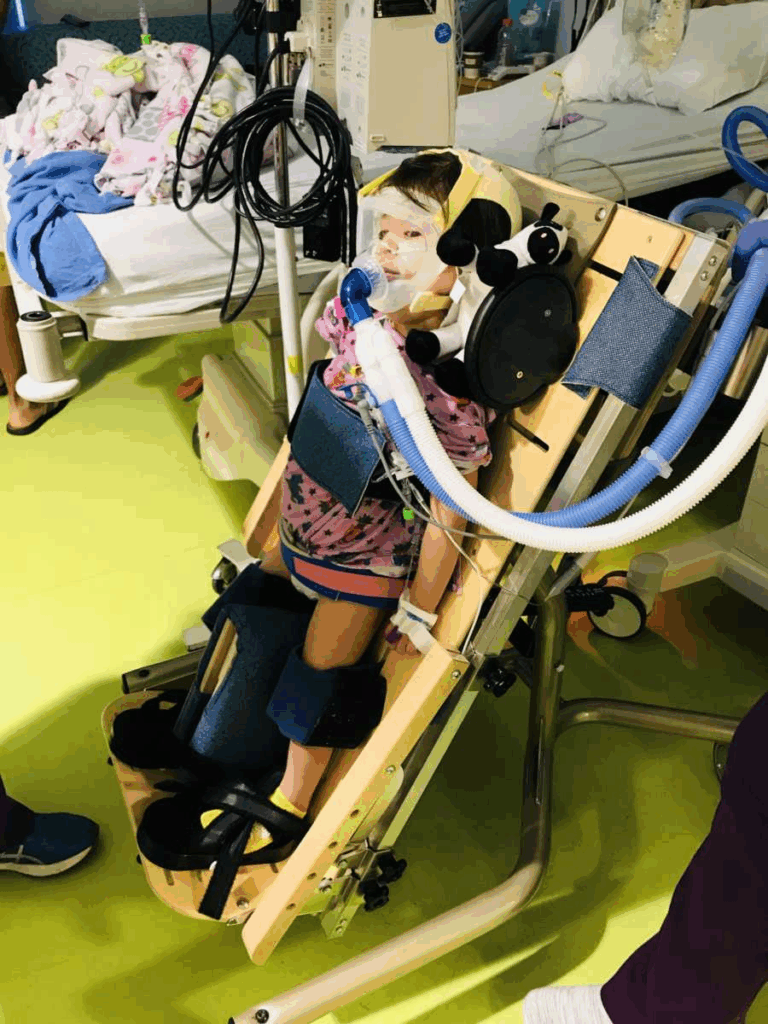
At the children’s hospital, the long wait for answers continued. Teams of specialists worked to stabilize her, running more tests and monitoring her around the clock. The words were unfamiliar but terrifying when the neurologist finally delivered the diagnosis. Abigail had Acute Flaccid Myelitis, a rare neurological condition that affects the spinal cord and can cause sudden paralysis. The doctor warned that she might get worse before she improved.
In the days that followed, Abigail’s condition deteriorated rapidly. Her left lung collapsed, and she was placed on a ventilator. Tubes and wires covered her small body as she underwent plasma treatments, physical therapy, and respiratory care around the clock. For three long weeks, her parents lived in the ICU, surrounded by machines and uncertainty. Each day felt like a battle between fear and hope.
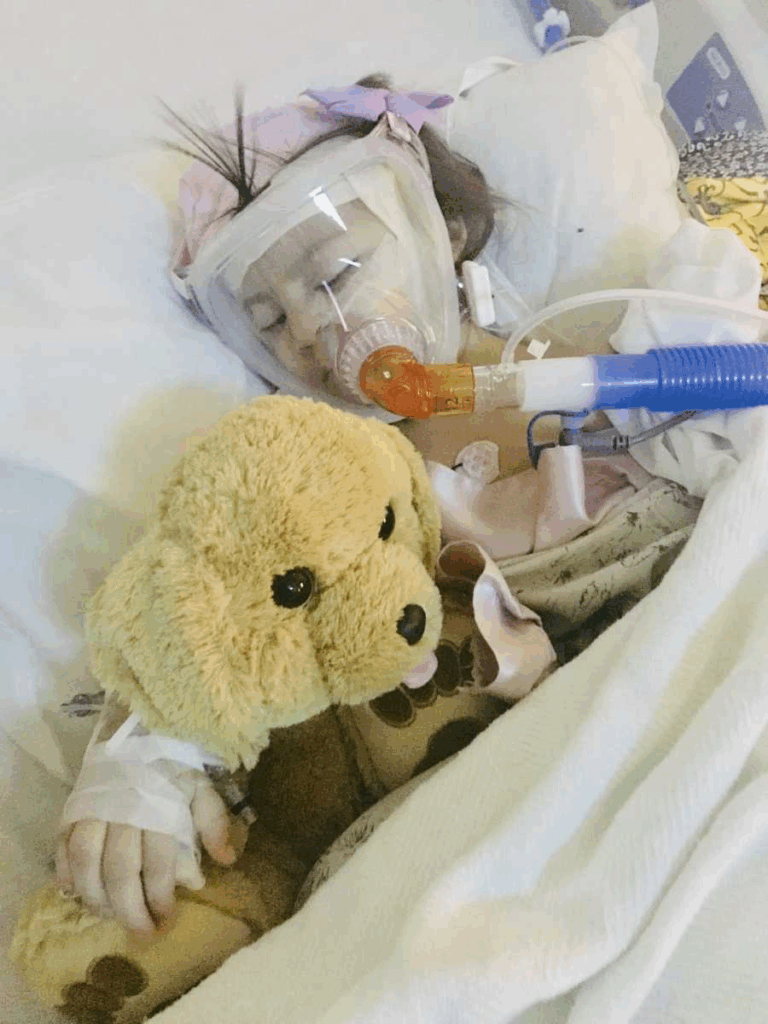
Gradually, minor signs of recovery began to appear. After several plasma treatments, Abigail regained movement in her arm and legs. The progress was slow but steady. The moment she could breathe without assistance was the first real turning point. When doctors announced she was stable enough to move to inpatient rehabilitation, her family finally allowed themselves to celebrate. Rehab brought its own challenges. Abigail had to relearn how to sit, stand, and walk. The routine was grueling, with therapy sessions throughout the day, but she never stopped trying. After two months in hospital, she finally returned home. Her joy was contagious. During the car ride, she repeatedly repeated one word, home. Surrounded by family, she smiled wider than she had in months, her spirit unbroken.
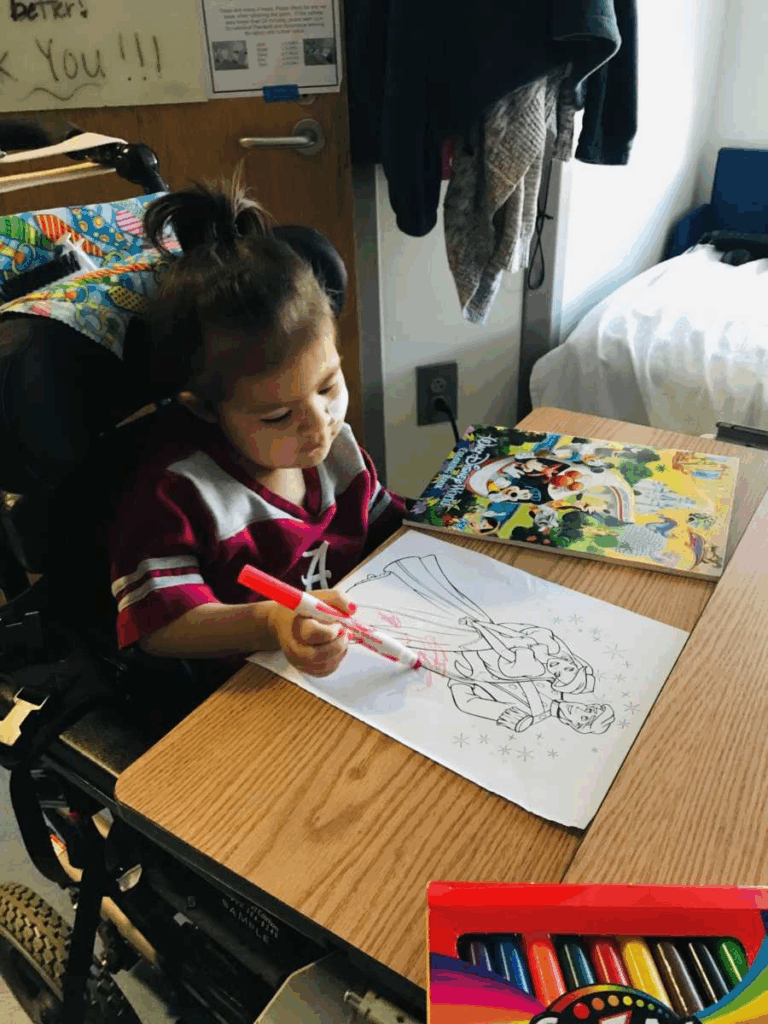
Back at home, therapy continued daily. At first, she cried, afraid she might have to return to the hospital, but soon she realized she was safe. That night, she took her first steps on her own. Her parents watched through tears, grateful for every movement and every breath she could take on her own. Since then, Abigail’s family has devoted their time to raising awareness about Acute Flaccid Myelitis. They share her story to help other parents recognize symptoms early and to encourage research into the mysterious condition. Despite countless tests, the cause of AFM remains uncertain, leaving many families searching for answers.
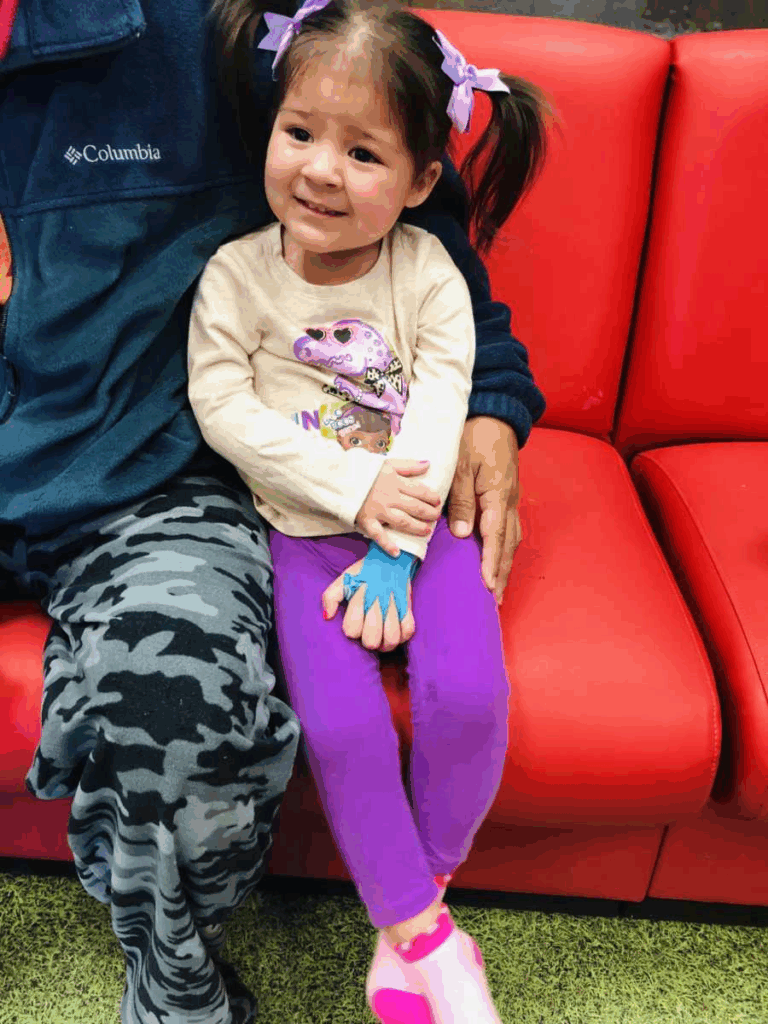
For Abigail’s mother, the hardest part is the unknown, not knowing why this happened or how it began. But she does know that her daughter’s courage has inspired everyone around her. What started as an ordinary cold turned into a fight for life, and that fight has reshaped their entire sense of what truly matters. Today, Abigail continues to grow stronger. Her story serves as a reminder of resilience, faith, and the power of love to endure even the darkest nights. Her family has chosen hope through every setback, determined to help others facing the same battle.
